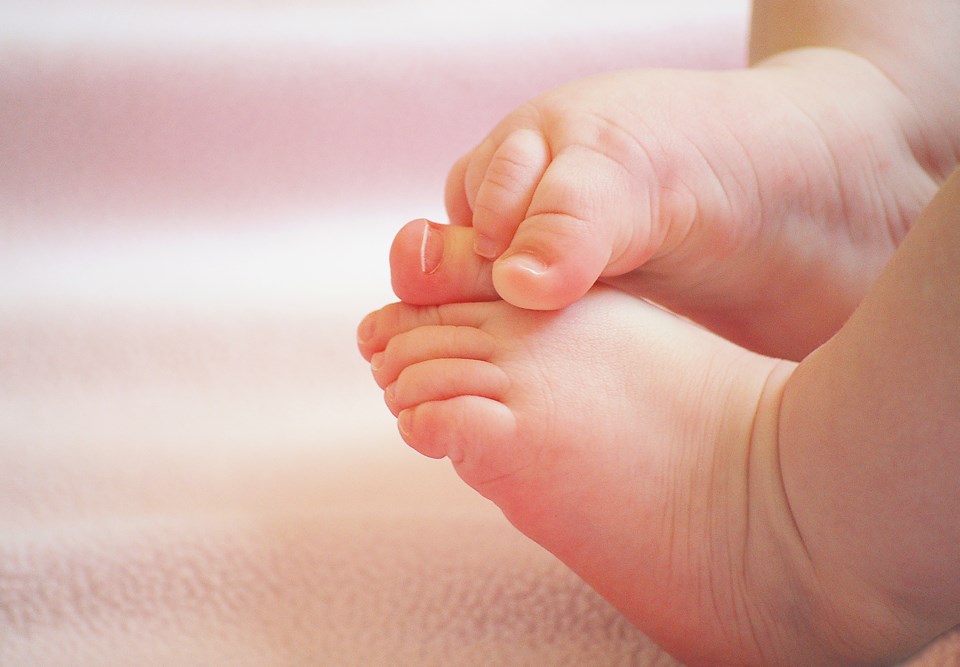ST. PAUL – The notion that “Women are not sick when they are pregnant,” was just one part of Dr. Florence Akindele’s message during her March 8 virtual program held in honour of International Women’s Day.
Attended by over 80 people from across the globe, Akindele, a St. Paul-based doctor, spoke about the global decline in birth rates as well as her story in St. Paul.
“The global trend for birth rates around the world are declining [and] it’s a known fact,” said Akindele.
According to data from the United Nations (UN), the births per 1,000 people was 37.8 back in 1950. The birth rate saw a steady decline with 17.4 births per 1,000 as of 2023. The UN projects the world birth rate will continue to decline, with the rate dipping to 11.4 births per 1,000 by the year 2100.
According to Akindele, one of the reasons women delay pregnancy or have less children now is largely attributed to economic reasons.
Women are also not given the best “space” in terms of childbirth, according to Akindele. “Even in Canada, I don’t see the level of comfort that I believe women deserve,” she said.
Women are performing a physiological function, she explained. “We’re not sick when pregnant [and] we’re doing the nation a favour by having babies and it’s not an easy process.”
She then cited UN data indicating Canada's fertility and birth rates are on a downward trend when compared to the global average. According to UN data, Canada’s birth rate, as of 2023 is 10 births per 1,000 people, with a fertility rate of 1.4 per woman, compared to the global fertility rate of 2.3 per woman.
“[This] means one birth per 100 people,” which she said is detrimental to Canada’s growth. For example, “We’re talking about workforce shortages, which is probably going to continue onto the next decades if we don’t have enough babies.”
In addition, maternity services are also disappearing around the world, she said. In Alberta, Akindele said the province is struggling with providing maternity and obstetric services. Hospitals are also “having to close down intermittently just to rearrange and get enough staff and resources.”
Due to the lack of resources, staff, and services, many mothers - including those in the Lakeland region - have struggled to deliver their babies.
She spoke specifically to how the pandemic resulted in women having to labour and deliver babies alone, due to their families not being allowed in hospitals. Women were also left wondering where they would deliver their babies because of the effects of the pandemic.
She also spoke about a couple situations she had personally experienced with patients. One situation included a patient who had to deliver her baby in an ambulance, on the way to the hospital.
The mother was not from the St. Paul area, but was being transferred from another hospital due to the obstetrics services being unavailable.
“There were not enough staff,” explained Akindele.
So, they sent the mother to the nearest hospital by ambulance, but that hospital also had no obstetric services available. By the time she reached the hospital in St. Paul, she had already delivered her baby.
“I can't imagine the trauma these women went through,” said Akindele, referring to other situations she’s experienced.
"If women continue to have this kind of experience locally, then [I] don’t expect any increase in birth rates globally,” said Akindele. “It’s not going to happen because women just go through a lot when it comes to having babies.”
To give women another option for labour and recovery, Akindele has been working to create a maternity home – a place that is a “safe, positive, and culturally inclusive alternative for pregnant women.” She has renovated a five-bedroom house located just across the street from the local hospital.
The goal of the Florence Maternity Home is to be a home, and not “an institution, not a center, a clinic or hospital.” It is meant to provide a “natural” environment and experience for families while still allowing professionals to care for mothers, explained Akindele.
Town of St. Paul Mayor Maureen Miller was a participant in the virtual program and expressed her thanks to Akindele for the work she is doing in the community.
“On behalf of the [Town of St. Paul] I truly am grateful. So, best of luck in this process... and know that there is support from the community to continue with your efforts.”
RELATED: Women's Health Services gets green light for Social Care Housing project near hospital



